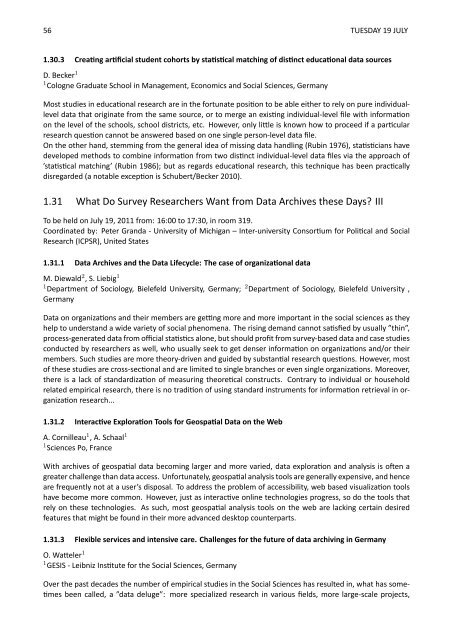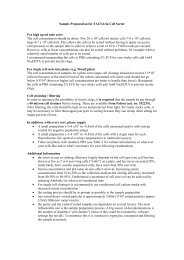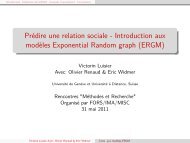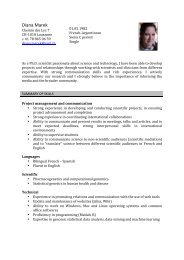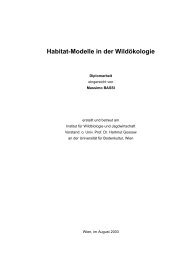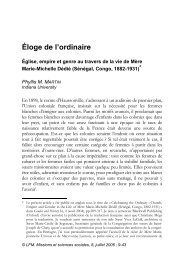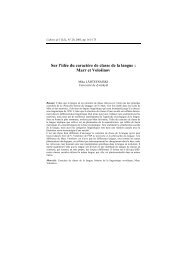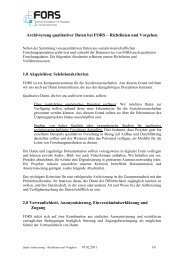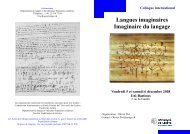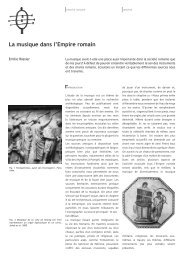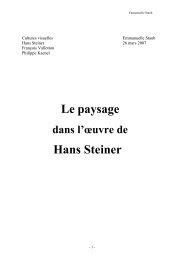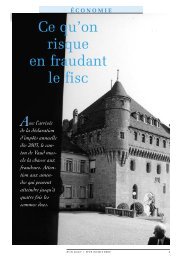conference programme book - European Survey Research ...
conference programme book - European Survey Research ...
conference programme book - European Survey Research ...
You also want an ePaper? Increase the reach of your titles
YUMPU automatically turns print PDFs into web optimized ePapers that Google loves.
56 TUESDAY 19 JULY1.30.3 Creang arficial student cohorts by stascal matching of disnct educaonal data sourcesD. Becker 11 Cologne Graduate School in Management, Economics and Social Sciences, GermanyMost studies in educaonal research are in the fortunate posion to be able either to rely on pure individualleveldata that originate from the same source, or to merge an exisng individual-level file with informaonon the level of the schools, school districts, etc. However, only lile is known how to proceed if a parcularresearch queson cannot be answered based on one single person-level data file.On the other hand, stemming from the general idea of missing data handling (Rubin 1976), stascians havedeveloped methods to combine informaon from two disnct individual-level data files via the approach of’stascal matching’ (Rubin 1986); but as regards educaonal research, this technique has been praccallydisregarded (a notable excepon is Schubert/Becker 2010).1.31 What Do <strong>Survey</strong> <strong>Research</strong>ers Want from Data Archives these Days? IIITo be held on July 19, 2011 from: 16:00 to 17:30, in room 319.Coordinated by: Peter Granda - University of Michigan – Inter-university Consorum for Polical and Social<strong>Research</strong> (ICPSR), United States1.31.1 Data Archives and the Data Lifecycle: The case of organizaonal dataM. Diewald 2 , S. Liebig 11 Department of Sociology, Bielefeld University, Germany; 2 Department of Sociology, Bielefeld University ,GermanyData on organizaons and their members are geng more and more important in the social sciences as theyhelp to understand a wide variety of social phenomena. The rising demand cannot sasfied by usually ”thin”,process-generated data from official stascs alone, but should profit from survey-based data and case studiesconducted by researchers as well, who usually seek to get denser informaon on organizaons and/or theirmembers. Such studies are more theory-driven and guided by substanal research quesons. However, mostof these studies are cross-seconal and are limited to single branches or even single organizaons. Moreover,there is a lack of standardizaon of measuring theorecal constructs. Contrary to individual or householdrelated empirical research, there is no tradion of using standard instruments for informaon retrieval in organizaonresearch...1.31.2 Interacve Exploraon Tools for Geospaal Data on the WebA. Cornilleau 1 , A. Schaal 11 Sciences Po, FranceWith archives of geospaal data becoming larger and more varied, data exploraon and analysis is oen agreater challenge than data access. Unfortunately, geospaal analysis tools are generally expensive, and henceare frequently not at a user’s disposal. To address the problem of accessibility, web based visualizaon toolshave become more common. However, just as interacve online technologies progress, so do the tools thatrely on these technologies. As such, most geospaal analysis tools on the web are lacking certain desiredfeatures that might be found in their more advanced desktop counterparts.1.31.3 Flexible services and intensive care. Challenges for the future of data archiving in GermanyO. Waeler 11 GESIS - Leibniz Instute for the Social Sciences, GermanyOver the past decades the number of empirical studies in the Social Sciences has resulted in, what has some-mes been called, a ”data deluge”: more specialized research in various fields, more large-scale projects,


